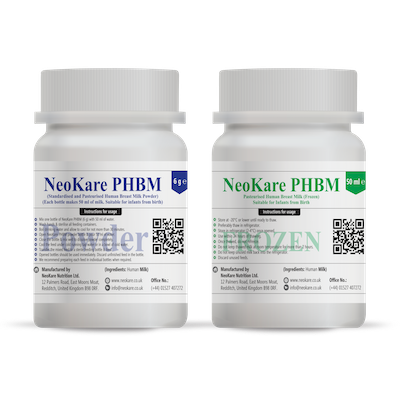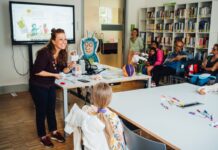With all the research that has been conducted and campaigns and recommendations that exist, it is almost impossible to miss the message that breast milk provides the best start for babies. The World Health Organisation (WHO) recommends exclusive breastfeeding for the first 6 months of life.
Breast milk contains natural components that are gentle on the developing stomach and support the growth of your baby. It contains the microbiome necessary to digest food, immunoglobulins and antibodies that help build the immune system and neuro-cognitive functions as well as good bacteria that are specific to human milk and help reduce the risk of allergies.
However, the reality is that breastfeeding can be challenging for a number of reasons, and when it is not possible, parents are faced with finding an alternative.
Breast Milk Alternatives
The most commonly used alternatives are cows’ milk-based formulas and milks. Despite advances in infant formulas, human milk provides a wide range of benefits, due in part to its bioactive matrix that cannot be replicated by any other source of nutrition.
Another alternative is donor milk. There has been a rise in milk sharing, with social media sites, such as Facebook, making it much easier to connect over-producing mums with parents who are unable to breastfeed. However, this practice has been criticised due to the lack of testing of the donating mothers and the donated milk. Informal milk sharing carries risk for bacterial and viral transmission, as well as inconsistency since breast milk can vary hugely in terms of nutritional content.
Pasteurised donor human milk is considered the next best alternative to mother’s own milk by WHO/UNICEF. Pasteurisation is a process in which milk is treated with heat to eliminate pathogens. The process is intended to destroy or deactivate organisms and enzymes that contribute to risk of disease. Through this process, the important components, such as human milk oligosaccharides (HMOs) and immunoglobulins, are retained.
NeoKare
With all the research that has been conducted and campaigns and recommendations that exist, it is almost impossible to miss the message that breast milk provides the best start for babies. The World Health Organisation (WHO) recommends exclusive breastfeeding for the first 6 months of life.
Breast milk contains natural components that are gentle on the developing stomach and support the growth of your baby. It contains the microbiome necessary to digest food, immunoglobulins and antibodies that help build the immune system and neuro-cognitive functions as well as good bacteria that are specific to human milk and help reduce the risk of allergies.
However, the reality is that breastfeeding can be challenging for a number of reasons, and when it is not possible, parents are faced with finding an alternative.
 At NeoKare, it is our mission is to provide safe, screened and pasteurised 100% human donor milk products. To ensure safety, all milk providers undergo serological testing for blood-borne diseases which can be transmitted through breast milk, and all milk received is tested for safety and quality at multiple stages in the production process.
At NeoKare, it is our mission is to provide safe, screened and pasteurised 100% human donor milk products. To ensure safety, all milk providers undergo serological testing for blood-borne diseases which can be transmitted through breast milk, and all milk received is tested for safety and quality at multiple stages in the production process.
NeoKare PHBM is made from pooled donor milk, so is likely to contain a wider variety of antibodies and microorganisms giving babies a more diverse range of immune defences and gut microbiome than milk from a single donor.
Available as both a frozen liquid, and a convenient powder, NeoKare PHBM is developed to suit the unique needs of babies and designed to fit the different needs of parents
To find out more or to order NeoKare PHBM visit www.neokare.co.uk
It is unarguable that human milk is the best source of nutrition for human babies, and the unique benefits of breastfeeding far outweigh the nutritional value. However, it is important to acknowledge that regardless of which route is taken, all parents are doing their absolute best for their babies.
Anecdotally some mums have reported that it is very disheartening to have to switch to formula when breastfeeding is not possible, after months of education on the importance and benefits of breastfeeding throughout pregnancy, and can lead to feeling as though they have failed. A study has reported that 74% of new mums surveyed said they would feel guilty if they didn’t breastfeed¹.
It is important that new parents are made aware of all options available to them, and that they are never made to feel inadequate for their choice of feeding, after all fed is best.
- https://lansinoh.com/blogs/breastfeeding/moms-want-to-breastfeed-but-feel-unprepared-unsupportedsinoh accessed 08/09/21
Sponsored content





